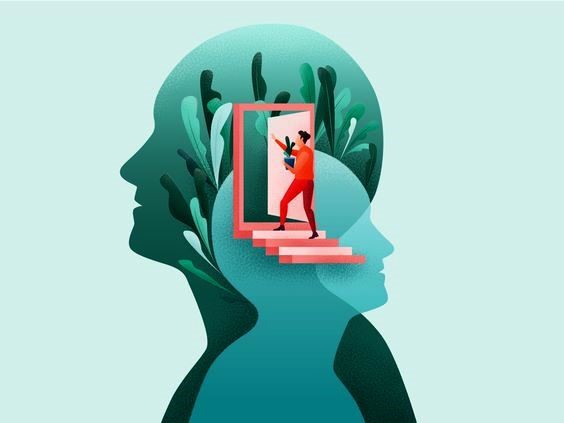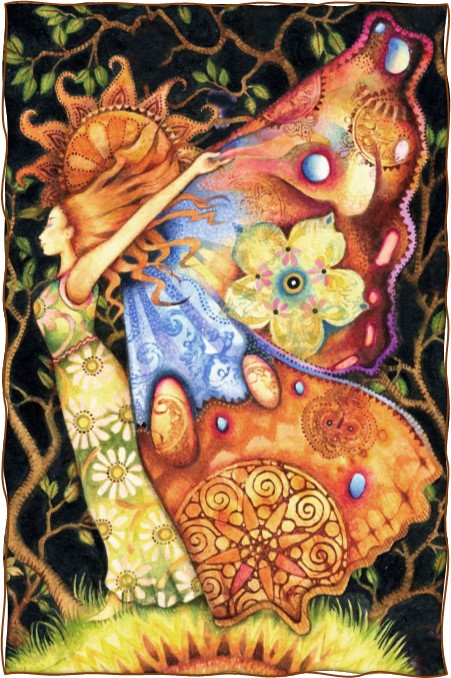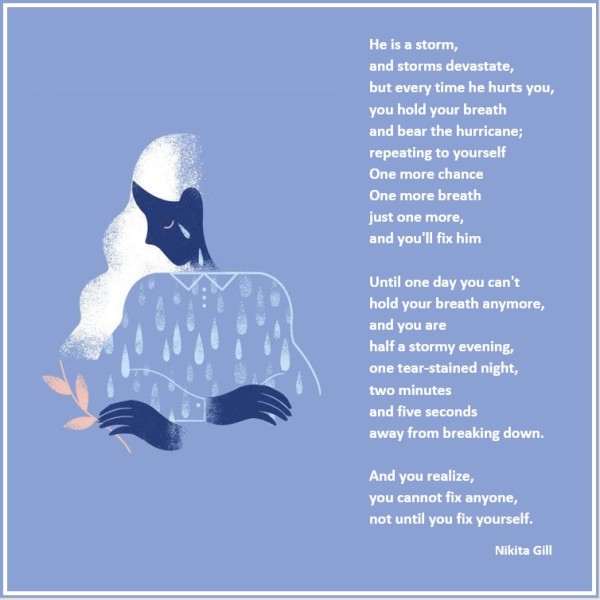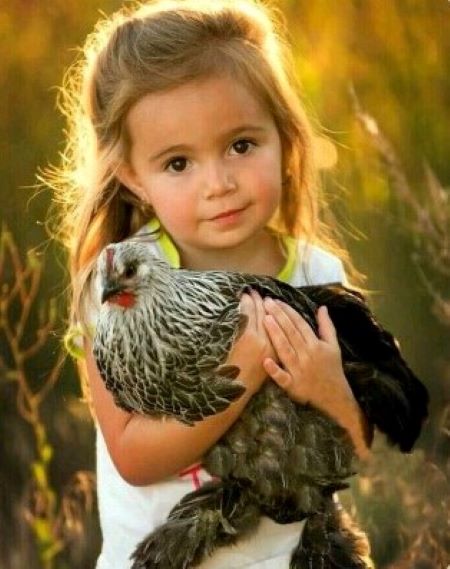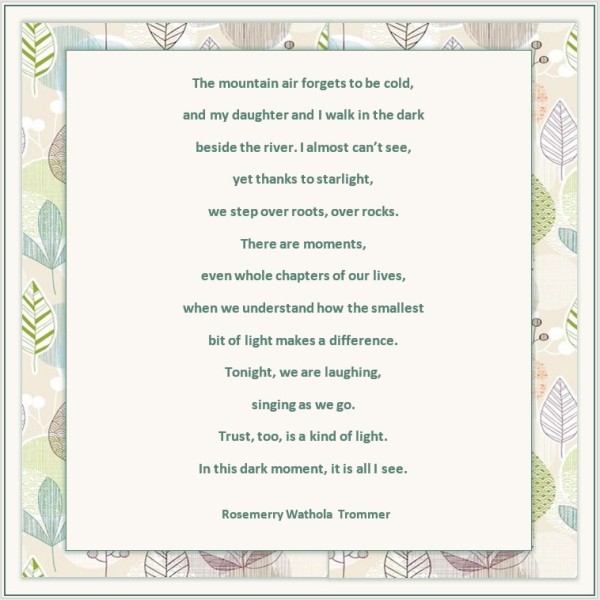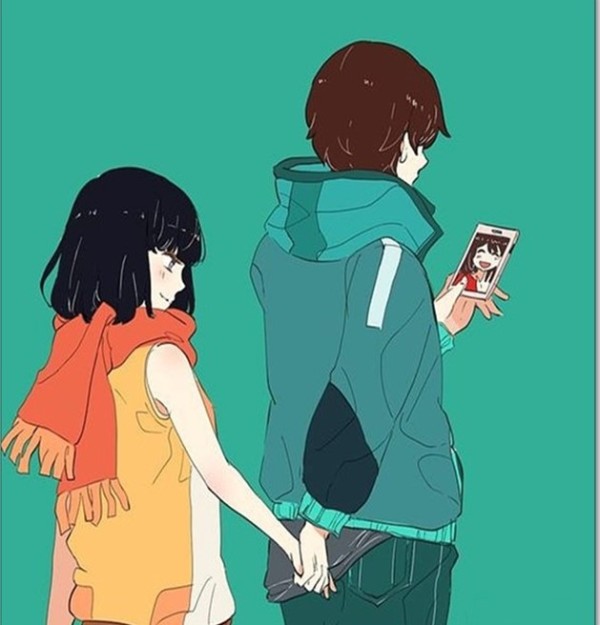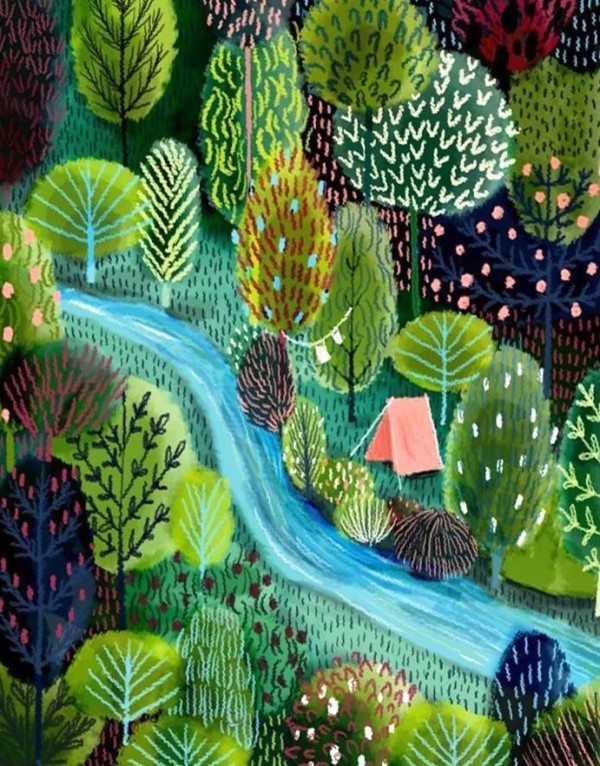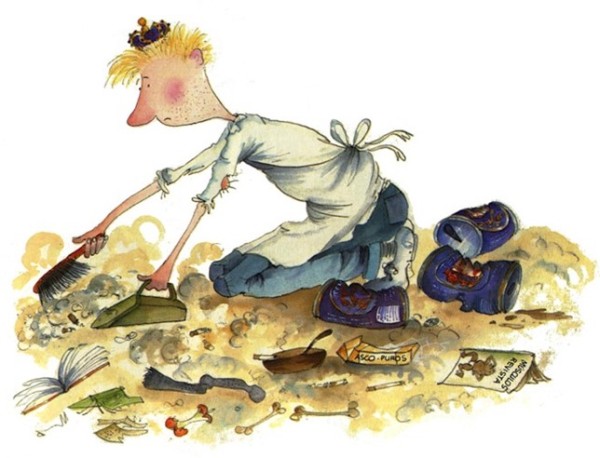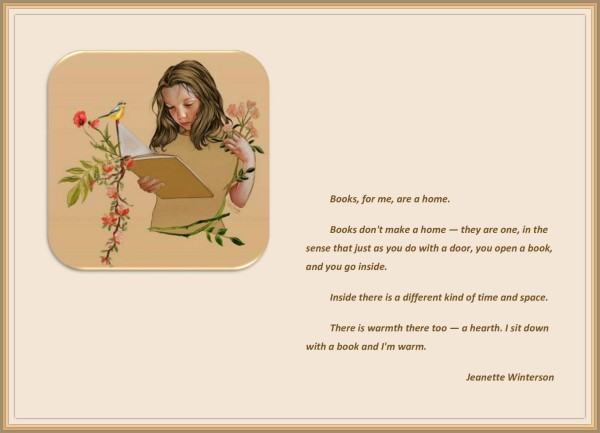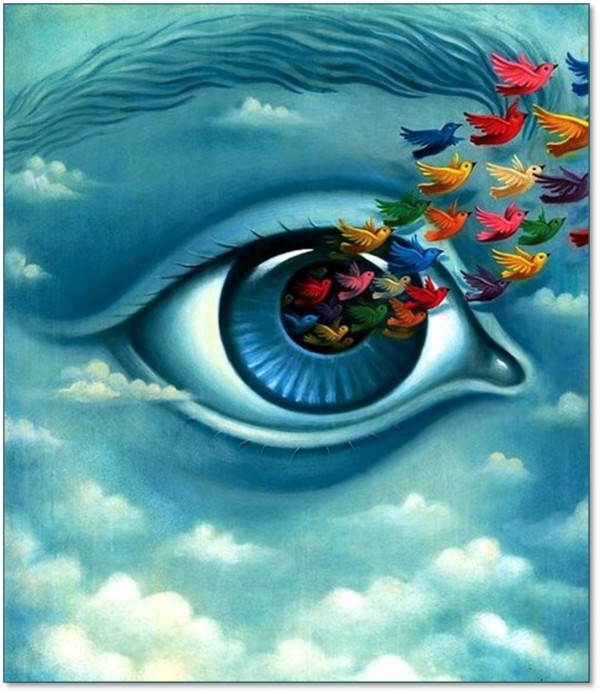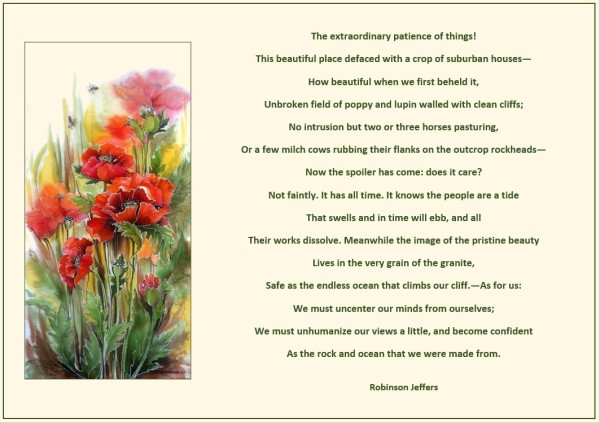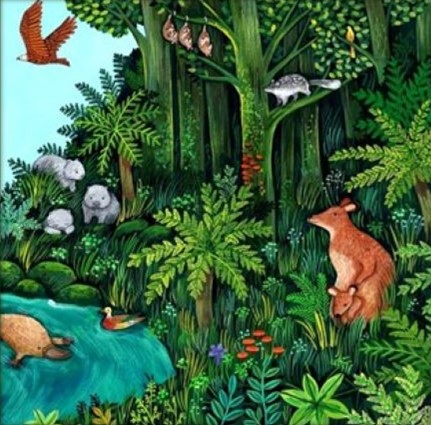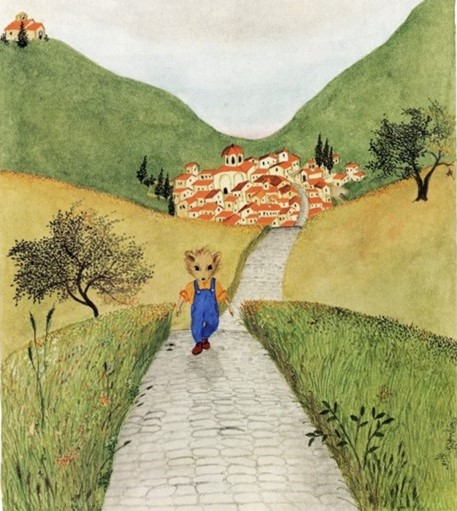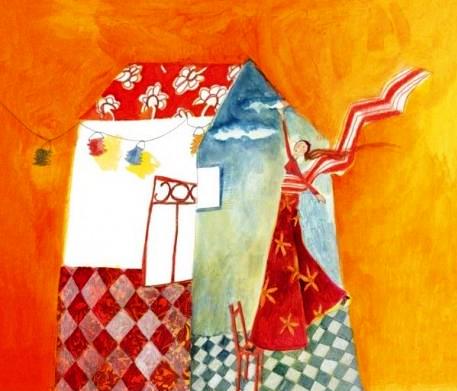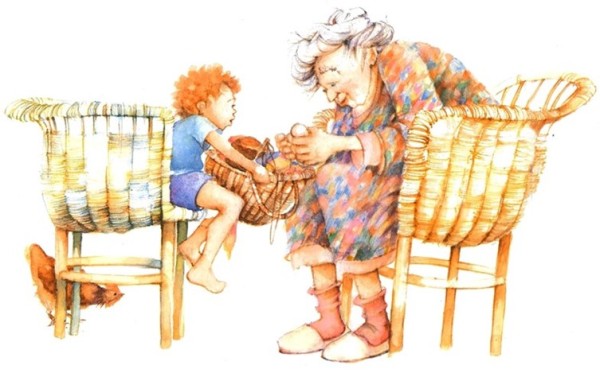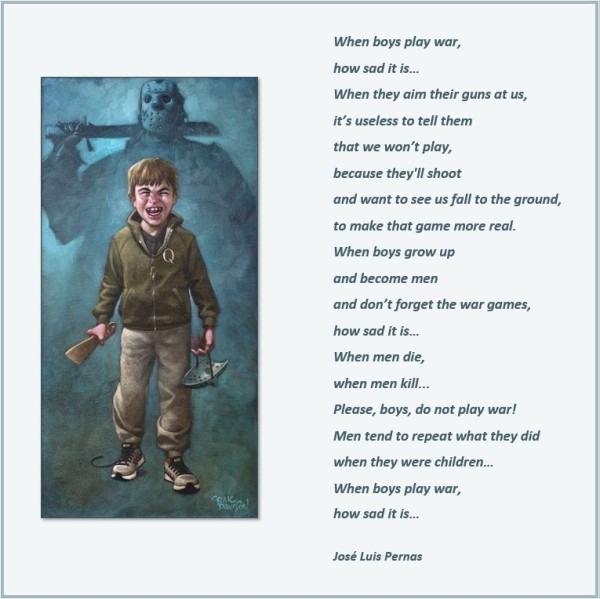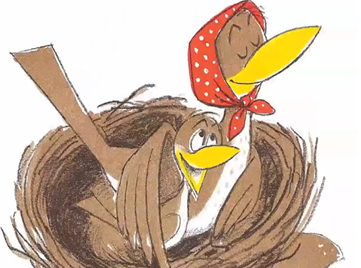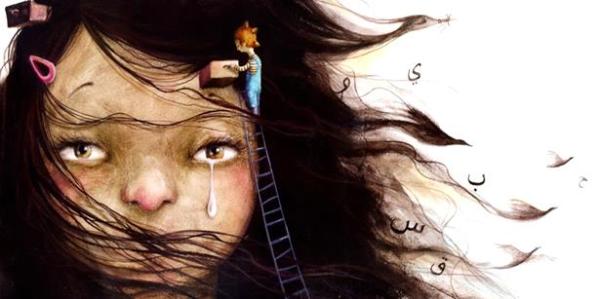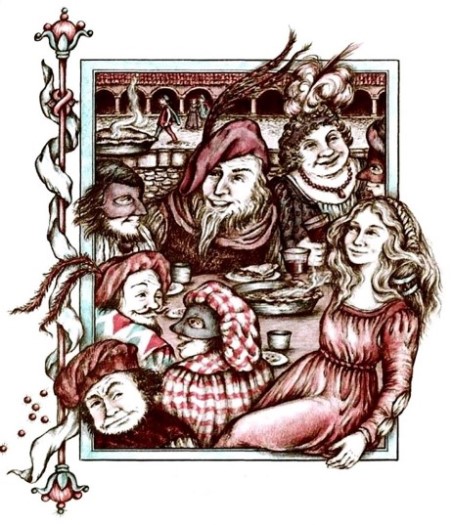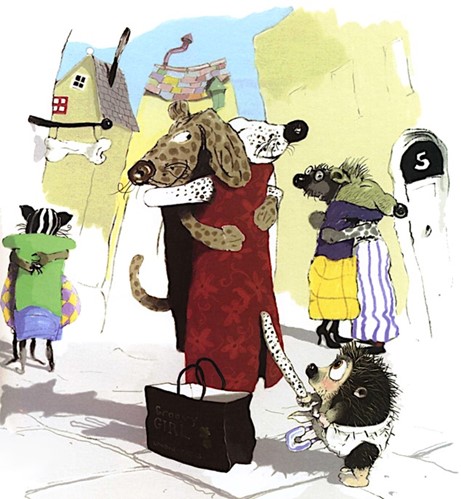Abraham Lincoln’s Letter to his Son’s Teacher
My son starts school today.
It is all going to be strange and new to him for a while and I wish you would treat him gently.
It is an adventure that might take him across continents.
An adventure that will probably include wars, tragedy and sorrow.
To live this life will require faith, love and courage.
So, dear Teacher, will you please take him by his hand
and teach him that for every enemy, there is a friend.
Are We Afraid Of Peace?
From time immemorial, people have talked about peace without achieving it. Do we simply lack enough experience? Though we talk peace, we wage war. Sometimes we even wage war in the name of peace. Does that seem paradoxical? Well, war is not afraid of paradoxes.
Continue reading “Are We Afraid Of Peace?”The Plot Chickens
Henrietta loved to read. Soon she had read every book on the farm a dozen times, so she went to town to find more. When she spotted people carrying books out of the library, she went inside to wait in line.
When it was Henrietta’s turn, the librarian said. “We have nothing for chickens here. Try the feed store.”
A Level of Interior Maturation
The ecological crisis we now face has emerged, in no small part, from the gross disparity that exists between our relatively underdeveloped inner faculties and the extremely powerful external technologies at our disposal.
With humanity’s powers magnified enormously through our technologies, we can do irreparable damage to the planet.
Continue reading “A Level of Interior Maturation”Andi’s Father
Andi had three friends and each of them had a famous father.
Alex’s father was a surgeon, one of those physicians to whom rich and important people go in order to have their appendixes removed.
Rafael’s father was a violinist, a well-known musician who gave concerts all over the world.
Let us Grow Up with Books
In my early childhood I loved to build houses out of blocks and all sorts of toys. Instead of a roof I often used a children’s book with pictures. In my dreams I climbed into the house, laid down on the bed made of a matchbox and looked up at the clouds or at the starry sky.
It all depended on which picture I liked the most. I have intuitively followed the rule of life of every child who seeks to create a comfortable and safe environment for himself. And a children’s book really helped me accomplish this.
The Best Story
The Red Brick Library was having a contest: Write the best story. Win first prize.
First prize was a ride on the Sooper Dooper Looper roller coaster with my favorite author, Anne Miles, who wrote The Runaway Roller Coaster.
Wow! First prizes don’t get any better than that.
I ran home.
Went to my room.
Shut the door.
I sharpened five pencils.
Opened my notebook to a brand-new page.
And thought.
And thought.
And thought.
Nature was once Life in Earnest
The experience and knowledge that nature possesses is infinitely larger than ours. Over millions of years, life has been adapting to changes in the environment, while also creating favourable conditions for its own expansion. For example, as the ecosystem of a forest grows, it also fosters soil fertility, produces food, cleans the air and the water, and sets up the conditions for all living beings to breathe. Unlike us, “nature not only takes care of itself, but it also takes care of everything that its descendants will need.”
Candy Pink
Once upon a time, in elephant country, there was a herd of elephants in which the females had large bright eyes and skin the color of candy pink.
The little girl elephants got this beautiful color because, from the time they were born, they only ate anemones and peonies.
It’s not that anemones and peonies were very nutritious…but they made their skin smooth and pink, and their eyes bright and beautiful.
The anemones and peonies grew in a little walled garden. Enclosed within, the little girl elephants played together and ate the flowers.
“Little girls,” said their dads, “if you don’t eat your anemones and finish your peonies, you’ll never be beautiful and pink as your mommies. You’ll never have bright eyes, and no one will want to marry you when you’re older.”
The World of Wonder
What do you see when you look up at the sky at night, at the blazing stars against the midnight heavens?
What do you see when the dawn breaks over the eastern horizon?
What are your thoughts in the fading days of summer as the birds depart on their southward journey, or in the autumn when the leaves turn brown and are blown away?
What are your thoughts when you look out over the ocean in the evening? What do you see?
Many earlier peoples saw in these natural phenomena a world beyond ephemeral appearance, an abiding world, a world imaged forth in the wonders of the sun and clouds by day and the stars and planets by night, a world that enfolded the human in some profound manner.
This other world was guardian, teacher, healer—the source from which humans were born, nourished, protected, guided, and the destiny to which we returned.
Tree of Cranes
When I was not yet old enough to wear long pants, Mama always worried that I might drown in a neighbor’s pond. Time and again she warned me not to play there, but I never listened because the pond was filled with carp of bright colors.
The last time I went there was a gray winter day, too cold for the fish to move around. They never came out from under the rocks, and all I caught was a bad chill.
Mama would be upset with me, I knew. She would know right away how I got my mittens all wet. But then she might be happy just to see me.
“Mama, I’m home!” I called. There was no answer.
She always met me at the porch, always.
I called again, and finally she answered, sounding far away. I waited, but she didn’t come out to see me. She must be sick, I thought.
Surprise Treasure
Treasure is a picnic
in a clearing amidst redwoods,
a black and white blanket to lie on,
a sky only blue.
It’s hours to wander.
It’s the braid of conversation
between friends and the moment.
Treasure is never what we thought it was.
Once we thought we were supposed
to live perfect, unfailing lives.
Now we know treasure can look like scars.
Can emerge
from the scent of burnt dreams.
Who Hid the Easter Eggs?
It was a beautiful spring day. Harry sat on a branch, swinging in the breeze. He was happy. He could feel the sun warming his fur and smell the fresh green leaves all around him.
Down below, he watched the grandmother walking around her yard. She was carrying a basket full of brightly colored eggs. “It must be Easter!” thought Harry and he leaped from his branch.
Harry knew that the grandmother always hid painted eggs in her yard at Easter so that her grandchildren could have fun searching for them. He watched her gently place an egg in a hole in the apple tree.
Responsibility
Thus far, our responsibility for how we treat chickens and allow them to be treated in our culture is dismissed with blistering rhetoric designed to silence objection: “How the hell can you compare the feelings of a hen with those of a human being?”
One answer is, by looking at her. It does not take special insight or credentials to see that a hen confined in a battery cage is suffering, or to imagine what her feelings must be compared with those of a hen ranging outside in the grass and sunlight.
We are told that we humans are capable of knowing just about anything that we want to know—except, ironically, what it feels like to be one of our victims. We are told we are being “emotional” if we care about a chicken and grieve over a chicken’s plight.
The Sunflowers
Logan whistled his way down the lane toward home. He was counting the days until the summer sun would shine on his very own corner of the garden.
The farmer promised him that he could plant anything he wanted. And Logan wanted something B-I-G, bigger than his brother’s cornstalks or his sister’s hollyhocks…
He wanted to grow great big sunflowers, so tall they would reach all the way to heaven!
After the warm sun of May chased the last frost away, Logan and the farmer chose the very best sunflower seeds.
“GIANT” declared the seed packet.
Logan was sure his sunflowers would touch the skies by August.
New Thinking
Analysis of society through the lenses of the domination system and the partnership system reveals connections that are invisible through the lenses of the common right vs. left categories. These new categories show that how a society constructs childhood and gender relations — the relations that children first experience and observe — is integral to what people consider normal, possible, and moral in all relations, from intimate to international.
Be they secular like Nazi Germany and Stalin’s Soviet Union or religious like Eastern and Western fundamentalist, regressive societies — characterized by political and economic domination, injustice and violence — advance their political agenda on the foundation of domination, injustice, and even violence in gender and parent/child relations. They recognize that the four cornerstones for either partnership or domination systems are 1) family/childhood relations, 2) gender relations, 3) economics, and 4) language/narratives about human nature and human possibilities.
The Snow Day
When I woke up in the morning, Mommy said, “You can sleep late today.”
“How come?” I asked, and she said, “Kindergarten’s closed.
It has been snowing all night and the school bus got stuck.”
“Snow!”
I jumped out of bed and ran for my boots.
“Wait,” Mommy said. “You can’t go out until it stops snowing. I don’t want you to catch a cold.”
But I snuck outside while Mommy washed dishes. I made a little snow dumpling on the balcony.
Moment
The moment when, after many years
of hard work and a long voyage
you stand in the centre of your room,
house, half-acre, square mile, island, country,
knowing at last how you got there,
and say, I own this,
is the same moment
when the trees unloose their soft arms from around you,
the birds take back their language,
the cliffs fissure and collapse,
the air moves back from you like a wave
and you can’t breathe.
The Promise
When I was young, I lived in a city that was mean and hard and ugly.
Its streets were dry as dust, cracked by heat and cold, and never blessed with rain.
A gritty, yellow wind blew constantly, scratching round the buildings like a hungry dog.
Nothing grew. Everything was broken.
No one ever smiled.
The people had grown as mean and hard and ugly as their city, and I was mean and hard and ugly too.
Masculine Emotions
Are boys encouraged to express sadness, fear, or anxiety?
In general, our society gives boys permission for one emotion: anger.
If a boy is hurt or upset, he may be comforted briefly, but then he is told to stop crying and “be a man”.
This message usually implies he should hide his feelings.
The First Bear in Africa
My name is Meto.
Here is the house where I live with my family and our animals, in a very small village in the middle of the African savanna.
This morning, I hear the noise of a motorcar coming towards us.
“Father, Father!” I say. “We’re going to have visitors!”
It is a family of tourists who have come to say hello to us!
They must have come from far, far away. They don’t speak our language.
They wear so many clothes! And they watch us all the time from behind their photographic machines.
I smile. They look funny.
Liquid Love – The Fragility of Relationships
Liquid love. It’s possible that you have heard about this interesting concept explained by sociologist Zygmunt Bauman who uses this poetic but distressing metaphor to convey the reality that seems to come up rather frequently nowadays: the fragility of relationships.
It’s not all that surprising that relationships have become more fleeting, given the broader social tendency toward one-time consumerism and the quest for satisfaction of our momentary needs.
The Gift of Grr-Face
The mother sat on the simulated-leather chair in the doctor’s office, picking nervously at her fingernails. Wrinkles of worry lined her forehead as she watched five-year-old Kenny sitting on the rug before her. He is small for his age and a little too thin, she thought. His fine blond hair hung down smooth and straight to the top of his ears. White gauze bandages encircled his head, covering his eyes and pinning his ears back.
In his lap he bounced a beaten-up teddy bear. It was the pride of his life, yet one arm was gone and one eye was missing. Twice his mother had tried to throw the bear away to replace it with a new one, but he had fussed so much she had relented. She tipped her head slightly to the side and smiled at him. It’s really about all he has, she sighed to herself.
Climate Change
The climate crisis is the biggest global threat to human rights we’ve seen in our lifetime.
From burning forests to sweltering cities, parched farmlands to storm‑battered coasts, climate change is taking a mounting toll on lives and livelihoods around the globe.
Unless governments act boldly—and quickly—to massively reduce greenhouse gas emissions, the situation could become unimaginably worse.
Rising sea levels and massive food shortages could drive hundreds of millions of people from their homes.
Prince Cinders
Prince Cinders was not much of a prince. He was small, spotty, scruffy and skinny.
He had three big hairy brothers who were always teasing him about his looks. They spent their time going to the palace disco with princess girlfriends. They made poor Prince Cinders stay behind and clean up after them.
When his work was done, he would sit by the fire and wish he was big and hairy like his brothers.
Silence
It’s easy for all the noise you’re surrounded by to confuse and distract you.
Part of knowing what you want is sitting in silence long enough to hear your own thoughts.
I’ve discovered that only in that space of quiet are you able to think for yourself.
When you have the courage to silence the world, you can start by asking yourself,
“What’s worthy of waking up for every day?”
My Chair of Perseverance
Outwardly, I joined in the crazy giggles that marked the moments I spent with my girlfriends. We blurted out expectations of college life and teased each other about the guys we’d meet. But inside, my heart ached.
Not even my best friend knew the burden I had tucked inside.
Five years earlier, I’d sat in the chair at the ophthalmologist’s office, face propped on the chin rest, with a bright light shining on my dilated pupils. Moments later, the doctor turned to my parents. “She does show signs of the disease.”
“There’s got to be a cure,” my mom anguished.
Past and Future
Writer Jonathan Schell said:
The procession of generations that extends onwards from our present leads far, far beyond the line of our sight, and, compared with these stretches of human time, which exceed the whole history of the earth up to now, our brief civilized moment is almost infinitesimal. Yet we threaten, in the name of our transient aims and fallible convictions, to foreclose it all. If our species does destroy itself, it will be a death in the cradle—a case of infant mortality.
The Littlest Elf
Oliver was an elf. He lived with his family in the North Pole. There were many elves in Santa’s Village, but Oliver was the littlest one.
It was Christmastime and Oliver was excited. This year he would discover his special job at one of Santa’s workshops. He just needed to visit each shop to see which one was the right fit.
At the toy workshop where his mom worked, Oliver tried to make cuddly teddy bears. But he got lost in the huge stuffing pile!
“Oliver?” an elf asked.
Oliver’s mom said, “I think you’re too little for the toy workshop. Why don’t you try helping your dad at the bicycle workshop instead?”
Masking : Putting on a Mask to Fit In
In order to fit in socially and be considered “normal” in our daily environment, we need to comply with certain unwritten “rules”. Therefore, we might choose the option of masking which can sometimes prove to be both a help and a hindrance.
Living in society has great advantages for us as a species. In fact, interaction with others is essential for the maintenance of our physical and psychological health. However, to fit in and be accepted by the group, we’re forced to fit the narrow mold of apparent “normality.” Therefore, those who differ from this in some sense are forced to use masking. This is a strategy that can prove to be extremely harmful.
The Two of Them
The day she was born, her grandfather made her a ring of silver and a polished stone, because he loved her already. Someday it would fit her finger.
He made a bed her size and covered her with a rosebud blanket to keep her warm, and sang her lullabies she did not yet understand.
Extinction
Thomas Berry said, “My generation has done what no previous generation could do, because they lacked the technological power, and what no future generation will be able to do, because the planet will never again be so beautiful or abundant.”
He points out that the Cenozoic, the era we are leaving behind, was when the earth was at its “most lyrical,” when songbirds, flowering plants, and the great families of mammals flourished.
The forest
I had always been afraid of the forest, that dark and unknown place at the farthest edge of my little world.
At night, I often dreamed of it and woke chilled with fear.
The fear was there in the day, too, hidden inside me no matter what I did or where I went.
Cooperation
Over the past few decades, a new vision has been emerging, both consciously and subconsciously, among many different kinds of people worldwide, both religious and non-religious. It is an evolutionary impetus that is leading us to a world consciousness that leaves behind the conflicts and rigid dogma of the magic-mythic-literalist mind-set and instead guides us into higher developmental levels that are pluralistic, holistic, and integral.
Why Thinking Positive Thoughts Won’t Get You What You Want
Positive thinking is a valuable tool that can help you overcome obstacles, deal with pain, and reach new goals. The benefits of looking on the bright side have been clearly documented. Research studies have discovered that optimistic people tend to enjoy increased marital satisfaction, better physical health, and higher incomes. Continue reading “Why Thinking Positive Thoughts Won’t Get You What You Want”
The Conquerors
There was once a large country that was ruled by a General. The people believed that their way of life was the best. They had a very strong army, and they had the cannon.
From time to time the General would take his army and attack a nearby country “It’s for their own good,” he said. “So they can be like us.” Continue reading “The Conquerors”
Phubbing: How Cell Phones Destroy Relationships
Technology never stops surprising us. Every year endless new phones, computers, and tablets come out, each one more modern than the last. The same thing is happening with apps and programs, giving us all kinds of ways to communicate. However, it’s ironic how the thing that connects us with people far away actually pushes us away from the ones close to us. “Phubbing”, that is, the act of ignoring others by constantly checking our mobile phones, is here to stay.
The first cell phones were a true revolution. Everyone talked about how easy it was to start up conversations with people who lived hundreds of miles away. When they brought this wonderful new thing to the whole world, it meant creating new, smaller, lighter models.
Red
It‘s no big deal.
It’s something so small.
No one else even sees it.
Only me.
I point at Tommy’s cheeks.
“You’re… You’re blushing…”
I wink at Paul. Paul grins. Lisa bursts out laughing.
The Iridescence of Birds
Nobody blossoms alone
If you were a boy named Henri Matisse who lived
in a dreary town in northern France where the skies were gray
And the days were cold
And you wanted color and light
And sun,
And your mother, to brighten your days,
Painted plates to hang on the walls
With pictures of meadows and trees,
Rivers
And birds,
And she let you mix the colors of paint—
Yellow and red,
Red and blue
Blue and yellow—
Stay True To Yourself and Your Dreams
When I was six or seven years old, I would go up to my parents and say, “Mommy! Daddy! I want to be just like that person when I’m all grown up!” My parents would just look down at me and smile. My mom would always say, “Do what you think will make you happy.” I always tried to stay true to that, but as I got older, I decided that I wanted to be something else. When you find something that you truly want to be, but people around you think that you are not capable of doing it, it hurts. Continue reading “Stay True To Yourself and Your Dreams”
Wilfrid Gordon McDonald Partridge
There was once a small boy called Wilfrid Gordon McDonald Partridge and what’s more he wasn’t very old either.
His house was next door to an old people’s home and he knew all the people who lived there.
He liked Mrs Jordan who played the organ.
He listened to Mr Hosking who told him scary stories.
He played with Mr Tippet who was crazy about cricket.
He ran errands for Miss Mitchell who walked with a wooden stick.
He admired Mr Drysdale who had a voice like a giant.
But his favourite person of all was Miss Nancy Alison Delacourt Cooper because she had four names just as he did.
Our Neighbors
If we go on forgetting half of Europe’s history, some of what we know about mankind itself will be distorted.
Every one of the twentieth-century’s mass tragedies was unique: the Gulag, the Holocaust, the Armenian massacre, the Nanking massacre, the Cultural Revolution, the Cambodian revolution, the Bosnian wars, among many others. Every one of these events had different historical, philosophical, and cultural origins, every one arose in particular local circumstances which will never be repeated.
Once Upon a Time There Was a… Princess? No.
Once upon a time there was a library. And there was also a girl named Luisa, who went to the library for the first time. The girl walked slowly, pulling an enormous backpack with wheels. She looked around at everything in amazement: shelves and more shelves filled with books… tables, chairs, colorful pillows, drawings and posters on the walls.
“I brought a picture of myself,” she said shyly to the librarian.
“Wonderful, Luisa! I’m going to issue your library card. In the meantime, you can choose a book. You can choose one book to take home, ok?”
“Only one?” she asked, disappointed.
Benno and the Night of Broken Glass
Benno the cat lived at Number 5 Rosenstrasse in Berlin, just a few blocks from the Neue Synagogue. He had a nice warm bed near the furnace where Hans, the Hausmeister, left him fresh milk every night.
On Friday nights, Benno visited the Adler family in Apartment 38. He watched Mrs. Adler light Sabbath candles, Mr. Adler slice a braided loaf of bread, and Sophie sing from a book she held close. After dinner, Sophie fed him scraps of chicken.
On Sundays after church, Benno visited the Schmidts, across the hall in Apartment 3A, for their family lunch. Before Mrs. Schmidt cleared the dishes for dessert, Inge sneaked bits of schnitzel to him under the table.
Waiting for the Biblioburro
On a hill behind a tree, there is a house. In the house, there is a bed and on the bed there is a little girl named Ana, fast asleep, dreaming about the world outside and beyond the hill.
When Ana wakes up to the rooster’s quiquiriquí, Papi is already at work on the farm and Mami is busy in the garden.
Ana bathes her little brother and feeds the goats and collects the eggs to sell at the market. After breakfast, Ana and her mother walk down the hill.
Ana closes her eyes against the sun and wishes she was back in the cool of the house with her libro, her book.
Ana has read her book, her only book, so many times she knows it by heart.
Where I Belong
“Why didn’t your parents want you? How does that make you feel?” “Is your real family dead?” “Will you have to go back someday?” Continue reading “Where I Belong”
A Happy Child
If, on Monday, I could run through the fields,
and see the flowers bloom
as if they were rainbows…
If, on Tuesday, I could contemplate the sky,
and behold a mystery in its infinite blue…
If, on Wednesday,
each person took off its mask,
and the truth could come to me…
Forest Baths: An Antidote to Stress
Stress has become a silent enemy that lurks everywhere. Big cities tend to produce one thing above all else: distressed people. Urban life itself sometimes produces tension by simply walking down the street. The bombardment of stimuli can be so high, that anyone would end up stressed.
Our senses also end up being affected by stress. For example, it’s harder for us to distinguish between smells due to environmental contamination. The same thing applies to sounds. In any main street of any city, the levels of noise are so high that we have to increase the volume we use to speak. Also, we usually have to pay more attention in order to be able to hear.
The Curious Garden
There was once a city without gardens or trees or greenery of any kind. Most people spent their time indoors. As you can imagine, it was a very dreary place.
However, there was one boy who loved being outside. Even on drizzly days, while everyone else stayed inside, you could always find Liam happily splashing through his neighborhood.
It was on one such morning that Liam made several surprising discoveries. He was wandering around the old railway, as he did from time to time, when he stumbled upon a dark stairwell leading up to the tracks.
The railway had stopped working ages ago. And since Liam had always wanted to explore the tracks, there was only one thing for the curious boy to do.
Liam ran up the stairs, pushed open the door, and stepped out onto the railway. The first thing he saw was a lonely patch of color. Wildflowers and plants were the last things he expected to find up there.
But when he took a closer look, it became clear that the plants were dying.
They needed a gardener.
Are You My Mother?
A mother bird sat on her egg. The egg jumped.
“Oh, oh!” said the mother bird. “My baby will be here! He will want to eat! I must get something for my baby to eat!” she said. “I will be back.”
So away she went.
The egg jumped. It jumped and jumped and jumped. Out came the baby bird.
There he is.
“Where is my mother?” he said.
Town is by the Sea
From my house, I can see the sea.
It goes like this — house, road, grassy cliff, sea.
And town spreads out, this way and that.
My father is a miner and he works under the sea, deep down in the coal mines.
When I wake up, it goes like this — first I hear the seagulls, then I hear a dog barking, a car goes by on the shore road, someone slams a door and yells good morning.
Double the Love
Blossom was a lucky girl. She had two grandmothers.
The city one she called ‘Nan’. The country one she called ‘Gran’.
Blossom lived in the city so she saw Nan a lot. She looked after Blossom when her mum was up to something busy.
Blossom and Nan had lots of special sayings, and they did special things.
“Come on, Nan,” said Blossom. “Let’s do a Tinga Layo!”.
“Tinga layo! Me donkey buck, me donkey leap, me donkey kick with his two hind feet,” said Nan.
And she would give Blossom a bouncy ride on her back.
The World
the world is being built up by greedy people wanting higher towers and then there’s a war or a hurricane or a tsunami or a virus or a financial collapse
happening
to put things in balance.
this has happened all through history and the humankind survives and moves on.
this is not an exception: this is a rule.
Full, Full, Full of Love
On Sunday, Mum took Jay Jay to Grannie’s house.
“I’ll go get Dad,” Mum said. “I won’t be long!”
Gran is soft and warm and full, full of hugs and kisses.
Kiss, kiss. Hugs and cuddles.
Grannie was cooking.
The dinner smelled lovely.
“Is dinner ready, Gran?” asked Jay Jay.
Human-Earth Relationship
The ecology issue emerges out of the fact that humans have been constructing a government for humans, by humans and with its destiny in developing the human – but that won’t work because if the human is looking for its own benefit rather than the benefit of the larger community, if we become predators on the natural community, then we lose in every way.
The American constitution is a disaster for everything that is not human. It may be wonderful for humans to have all these rights, including rights of property without restriction on the part of government, as to what they own or what they do with it, but if there are no rights and no protections for anything that is not human, then we establish a predator relationship.
The Day Saida Arrived
The day Saida arrived, it seemed to me that she had lost all her words. So, I tried to look for them in every nook cranny corner drawer seam to see if, between them and me, we might get rid of her tears and throw away her silence.
The day Saida arrived, I searched under the tables, the blackboard and the desks. I looked through the notebooks and between the colored pencils. Under the cushions and beneath the book jackets. Inside the pockets of all the coats.Between the curtains, the hands of the clock, and the letters of the stories.
But no matter how hard I tried, I couldn’t find any of Saida’s words. When she looked at me with her large amber eyes, I thought I saw questions and sadness inside her.
Wangari’s Trees of Peace
Wangari lives under an umbrella of green trees in the shadow of Mount Kenya in Africa.
She watches the birds in the forest where she and her mother go to gather firewood for cooking. And she helps harvest the sweet potatoes, sugarcane, and maize from the rich soil.
Wangari shines in school, and when she grows tall, like the trees in the forest, she wins a scholarship to study in America. Six years later, her studies over, Wangari returns to her Kenya home and sees a change.
Gina Farina and the Prince of Mintz
Gina Farina, the baker’s daughter, made marvelous, meaty, most unusual, truly splendiferous pies. They were crusty and spicy, with apples and quince—ah, just the slightest hints of quince. The people came from miles around to buy them and sing her praises.
But Gina Farina paid no attention.“That girl has a mind of her own,” said the baker, “and her heart’s always set on adventure.”
It was true. She’d count the weeks until the traveling players came, for they told tales of splendid Ravenna—and Venice, where streets were rivers—and Constantinople, city of jewels. Gina Farina would listen for hours.
“To go with the players and travel the world—that’s what I wish!” she often said.
A more altruistic world through female leadership
The fight for women to gain access to leadership positions must be at the heart of the evolution of businesses and of our organizational models.
This not only means arguing for legitimate equality but also understanding that without women these organizations are depriving themselves of precious assets.
The Happy Prince
High above the city, on a tall column, stood the statue of the Happy Prince.
He was gilded all over with thin leaves of fine gold, for eyes he had two bright sapphires, and a large red ruby glowed on his sword-hilt.
He was very much admired indeed. “He is as beautiful as a weathercock,” remarked one of the Town Councillors who wished to gain a reputation for having artistic tastes; “only not quite so useful,” he added, fearing lest people should think him unpractical, which he really was not.
Grow Kind
My name is Kiko. I grow kind. I will show you how, but first, I have a question for you.
Who helps you wake up in the morning?
This morning, Chico woke me up by licking my face. We went outside to check the garden.
We saw peas and peaches, tomatoes and potatoes, radishes and roses, blackberries and broccoli, melons and marigolds, and so much more!
I wanted to wake up Annie, but Mom and Dad stopped me.
“Be kind to Annie and let her rest,” said Mom. “Teenagers need a lot of sleep.”
I Want A Hug
At one end, Elvis the Hedgehog was as bristly as a scrubbing brush.
At the other, he was as prickly as a pine needle.
Little Elvis wanted nothing in the world as much as to be hugged.
So even when he asked nicely, nobody would give him a hug.
“No, you’re much too prickly!” they would say.






